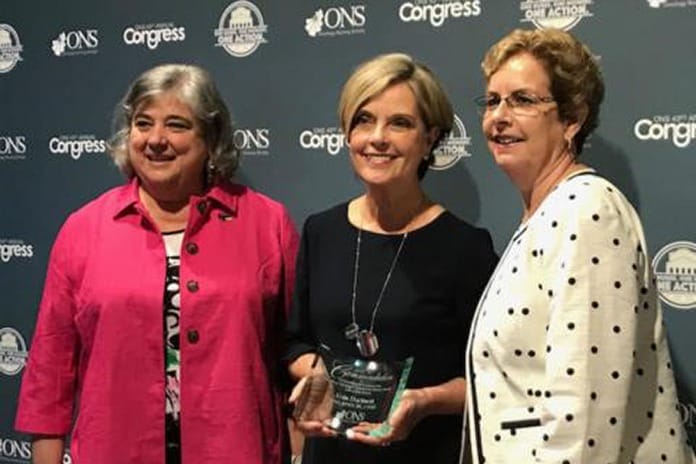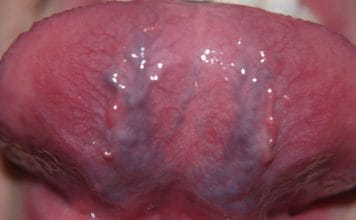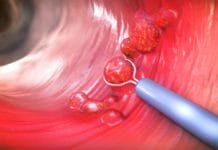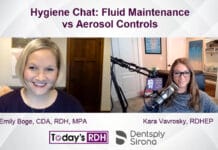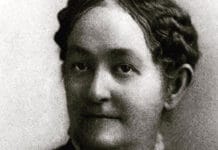More than two decades ago, the U.S. Surgeon General’s report titled Oral Health in America was a call to action for all health professions to play a role in reducing the burden of oral disease in America. A decade after that, the Institute of Medicine (IOM) released both Advancing Oral Health in America and Improving Access to Oral Health Care for Vulnerable and Underserved Populations, which reinforced the importance of oral health. The reports specifically highlighted the importance of the nursing profession. One of IOM’s recommendations was to invest in the workforce with innovations.
Opportunities come in strange ways and challenge us to do uncomfortable things that lead to glorious relationships. I had the honor of doing a speaking gig in September, and someone reached out to me after the course and was very complimentary (I do enjoy the wins). He wanted to connect me to someone in his company that was going to do a panel discussion for a webinar about dental-medical integration that included three other panelists. I stopped dead in my tracks when I found out who else was involved and their contribution to their respective fields:
- Jack Dillenberg, whose list of accomplishments could fill the page and will take his seat as mayor of Jerome, Arizona, in November.
- Judith Haber, Ph.D., APRN, BC, FAAN, who has been a longtime advocate of the integration of mental health and physical health.
- Erin Hartnett, DNP, PPCNP-BC, CPNP, FAAN, the program director of New York University’s (NYU) Oral Health Nursing Education and Practice (OHNEP) program, and many other accolades we will talk about.
Dr. Haber and Dr. Hartnett co-authored Putting the Mouth Back in the Head HEENT to HEENOT,1 providing evidence “that N.P. and N.M. students are ideal to involve with dental students as well as medical students for interprofessional oral-systemic health experiences that lead to the acquisition of interprofessional oral health competencies and become an integral component of primary care practice, thus contributing to the Healthy People 2020 goals for improving oral health.”
I found Dr. Hartnett to be a bit more soft-spoken than the rest of us. The cadence of her voice was almost mesmerizing. She brought to the table content that was thorough and enlightening. I had to know more, and, after the course, I emailed her and nervously asked if I could interview her for an article that I would like to write. I felt hygienists might not know what is happening in some of the corners of the United States in the integration of oral health and systemic health.
Dr. Hartnett generously agreed, and part of the interview is below. Enjoy. First, a little background about her: Dr. Hartnett is the program director for the NYU Rory Meyers College of Nursing oral health programs − Oral Health Nursing Education and Practice (OHNEP) and Teaching Oral Systemic Health (TOSH). OHNEP promotes interprofessional oral health integration that not only advocates but creates, educates, and promotes resources that educators and clinicians can use to improve the quality of oral health care in their patients. Dr. Hartnett has developed a national interprofessional oral health nursing curriculum and has coordinated many oral health interprofessional experiences with NYU’s nursing, medical, and dental schools. She has published many articles on oral health.
She received her bachelor’s from Georgetown University, and a master’s in nursing education from Wagner College, a master’s (to become a pediatric nurse practitioner) from Seton Hall University, a doctorate of nursing practice from NYU, and is almost finished with a master’s in Irish Studies at NYU.
Dr. Hartnett is a pediatric nurse practitioner. She specialized in pediatric neuro-oncology at NYU’s Hassenfeld Center for Children with Cancer and Blood Disorders, where she initiated and coordinates the pediatric oncology dental program. Dr. Hartnett received the national 2012 DNP Capstone Award from the American Association of Colleges of Nursing, the 2012 New York Times Nurse Innovator Award, and the 2012 NYU Medical Center Advanced Practice Award for this program.
She has received the 2017 Georgetown University Outstanding Alumna Award for her work in interprofessional education, the 2018 Oncology Nursing Society Commendation for Outstanding Achievement for Oncology Nursing Education, and the 2019 Edge Runner Award from the American Academy of Nursing. Dr. Hartnett has been appointed a Fellow of the New York Academy of Medicine.
Rice: Can you tell me whether you were always a person who just loved learning, or did you have an end goal in mind so that you kept continuing your studies?
Dr. Harnett: I love school! I have tried to get a different degree each decade. I have almost completed my master’s in Irish Studies. If it weren’t for the pandemic, I would have been in Dublin at Trinity this summer, completing it!
Rice: Tell me about the Oral Health Nursing Education and Practice. were you involved from the inception?
Dr. Hartnett: [Dr.] Judi Haber received the OHNEP grant in 2011 from the Dentaquest Foundation to integrate oral health into nursing education and practice. Judi is the executive director. OHNEP had another program director for two years before me. I came in 2013.
Rice: How did you first get involved in interprofessional work that was specifically focused on oral care.
Dr. Hartnett: As program director of both oral health grants (OHNEP and TOSH), interprofessional education and practice were essential components.
Rice: Similarly, you have gone from a pediatric nurse practitioner and pediatric oncology to turning that into an oral health focus. How did that come about?
Dr. Hartnett: I worked in pediatric neuro-oncology for 15 years. One of my patients was a dental student, and one day while in the clinic getting her treatment, she said to me, ‘These kids’ teeth look terrible!’ So, I said, ‘What are we going to do about it?’ We made a plan that she would bring her dental student friends into the clinic and teach the kids to brush their teeth.
It was very successful. The chair of peds dental called me and asked me if I would be able to have a peds dental resident work with me in the clinic. Working with a peds dental resident seeing children with cancer allowed me to teach the resident about childhood cancer and for me to learn about oral health.
I realized how much I was missing and decided to start a program to educate the other oncology providers to perform oral assessment and F.V. (fluoride varnish) on all oncology patients. This developed into my DNP (doctorate of nursing practice) project. When I finished my DNP, NYU had two grants to integrate oral health into nursing education, and I became the program director.
Rice: You are also the program director of TOSH. Please tell me a little about that.
Dr. Hartnett: The TOSH, Teaching Oral Systemic Health, was a three-year HRSA (Health Resources and Services Administration) grant, which was extended an additional year and ended in 2016. We don’t have that grant anymore but have been able to continue the work we started with it.
Rice: You developed a national interprofessional for the health nursing curriculum. Can you tell me a little about what the curriculum covers?
Dr. Hartnett: The Interprofessional Oral Health faculty tool kits are organized by program and describe how to weave evidence-based oral-systemic health content, teaching-learning strategies, and clinical experiences into undergraduate, nurse practitioner, and midwifery programs.
These tool kits can serve as a starting point for faculty, clinicians, and organizations as they work to play a leadership role in building interprofessional oral health workforce capacity to improve oral health access, decrease oral health disparities, improve oral health and overall health outcomes, prepare for accreditation, and enhance the health of the communities they serve. They are open access on the OHNEP website.
Rice: What medical and dental schools have you worked with?
Dr. Hartnett: I have only planned interprofessional clinical experiences with NYU, but I have done presentations at other schools, including the University of Sydney dental school and Western Sydney University, Australia.
Rice: Do you have any dental hygienists involved in any of your work?
Dr. Hartnett: Our program was originally funded for graduate students, so we focused on graduate programs – N.P., M.W., DDS, MD, PharmD. Since we have recently completed the undergraduate curriculum, we hope to plan undergraduate IPE (interprofessional education) with dental hygiene students.
Each year, we go to the annual Organization for Associate Degree Nursing Conference (OADN) and promote interprofessional oral health collaboration in the community college programs since they often have dental hygiene programs to collaborate with.
Rice: What are your thoughts about collaboration between disciplines?
Dr. Hartnett: I actually have found the dental profession very open to collaborating on educational programs. Much needs to be changed in practice to allow collaboration between professions. We are hoping that by exposing health professions students to interprofessional education and collaboration, they will develop the knowledge and skills needed as well as the understanding of the importance of whole-person care.
Rice: What is the biggest hurdle you find with your work?
Dr. Hartnett: Prior to the pandemic, it was scheduling. All the schools are on different academic calendars within the same institution. Since the pandemic, it is very difficult to get students together in the clinical area since the number of students allowed is so limited now.
Rice: What would be one thing you would change in nursing that would help oral-systemic health and education?
Dr. Hartnett: I hope that nursing will continue to integrate oral health into overall health in both education and practice. I hope that my work has an impact on decreasing oral health disparities by assuring that oral health is a part of overall health.
Rice: How can dental hygienists who want to work in medical disciplines go about doing that, in your opinion?
Dr. Harnett: Dental hygienists have a great deal to offer in medical settings. Nurses are not doing the work of the hygienist. Nurses are doing oral health assessments, fluoride varnish, education on oral hygiene and nutrition, and referral for dental care. Dental hygienists’ services are different from nurses and are needed. They can collaborate with medical providers and are invaluable in the medical setting. They need to advocate for this.
I was so honored that Dr. Harnett spent a little time with me, giving me a glimpse into her world at NYU and the service she is doing for oral health. There was so much I learned from all of the panelists. My takeaway was simple. Medicine does want to collaborate with us, and we must start reaching out to as many providers as we can. The struggle is real, as they say, but we must push our way in if we want in.
Now Listen to the Today’s RDH Dental Hygiene Podcast Below:
Reference
- Haber, J., et al. Putting the Mouth Back in the Head: HEENT to HEENOT. American Journal of Public Health. 2015; 105(3): 437-441. Retrieved from https://ajph.aphapublications.org/doi/10.2105/AJPH.2014.302495.

